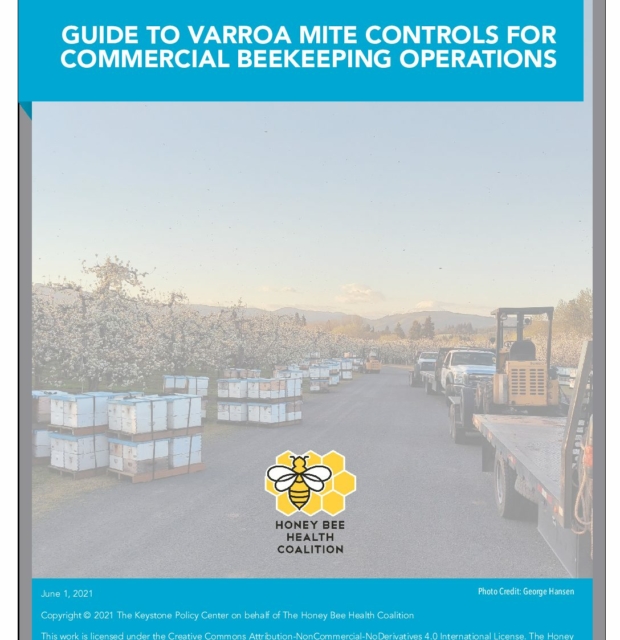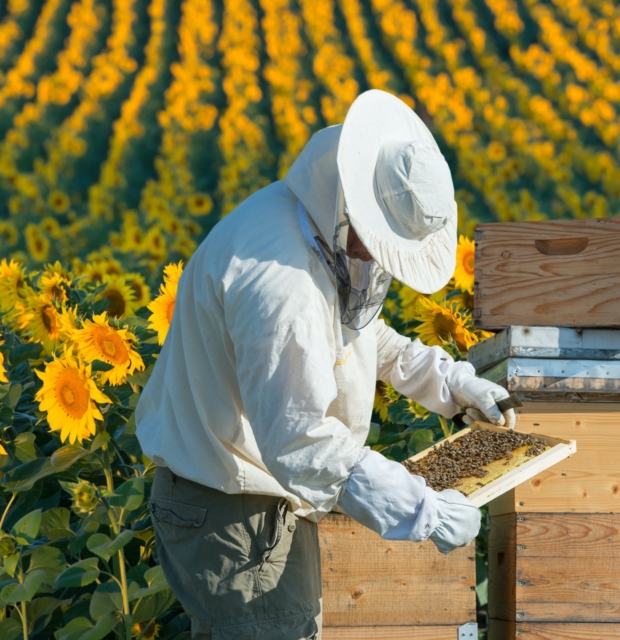News
Honey Bee Health Coalition Launches Innovative Demonstration Project to Show Real-World Impact of Multiple Best Management Practices for Bee Health
The Honey Bee Health Coalition, a diverse group of more than 40 organizations working to support pollinator health, announced today the launch of an innovative and ground-breaking demonstration project aimed at showcasing the real-world impacts a series of best management practices have on honey bees and agriculture. The Bee Integrated Demonstration Project will bring together beekeeper-farmer pairs to show how a suite of best practices can be implemented together in agricultural landscapes. The project includes establishing pollinator forage, Varroa mite treatment and monitoring, and following pollinator protection plans and best practices for crop pesticide use.
 “Bee Integrated is a ground-breaking, real-world demonstration of how best management practices can help address the numerous challenges honey bees face,” said Julie Shapiro, the facilitator of the Honey Bee Health Coalition and a senior policy director at the Keystone Policy Center.
“Bee Integrated is a ground-breaking, real-world demonstration of how best management practices can help address the numerous challenges honey bees face,” said Julie Shapiro, the facilitator of the Honey Bee Health Coalition and a senior policy director at the Keystone Policy Center.
The Bee Integrated Demonstration Project will launch in North Dakota, which is both the nation’s leading honey production state and the home of apiaries that provide pollination services across the country. The project will run from 2017 through 2020. The first pairs of farmers and beekeepers have begun to work together. The Coalition is planning to add more pairs to the project in 2018.
Bee Integrated will support its farmer-beekeeper pairs with expert guidance and resources; measure the results of the pairs’ work; and share the findings and lessons learned with the broader beekeeping and farming communities.
“There are many factors that impact pollinators and the Honey Bee Health Coalition Bee Integrated Demonstration Project brings together various experts – from beekeepers and farmers to scientists and technology providers – to create solutions for the challenges pollinators face,” said Keri Carstens, DuPont Pioneer Seed Treatment Enterprise, Senior Manager for Integrated Product Research & Stewardship. “This integrated approach ensures that we’re working holistically towards a sustainable, positive solution, which is why DuPont is a proud sponsor of the Bee Integrated Demonstration Project and the Honey Bee Health Coalition.”
Funding and in-kind support for the project is provided by the Almond Board of California, The Bee and Butterfly Habitat Fund, Bayer CropScience’s Healthy Hives 2020 program (administered by Project Apis m.), the National Honey Board (also administered by Project Apis m.), the North Dakota Outdoor Heritage Fund, the North Central IPM Center, DuPont Pioneer, Eastern Missouri Beekeepers Association, Syngenta, and the Honey Bee Health Coalition. Project coordination is being provided by Conservation Technology Information Center. Monitoring is being provided by the Bee Informed Partnership and U.S. Geological Survey.

